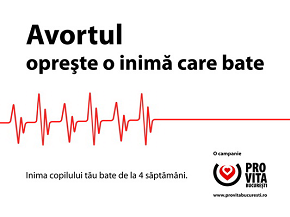 AuthenTec Inc. and Taiwan’s ASUS roll out Windows 7 biometric laptops
AuthenTec Inc. and Taiwan’s ASUS roll out Windows 7 biometric laptops
Biometric electronics maker AuthenTec Inc. said Friday its fingerprint-recognition systems are part of the new Windows 7-based laptop computer rollout by PC-maker ASUS of Taiwan.
Melbourne-based AuthenTec said its “smart fingerprint solutions” are featured in various versions of new notebook PC models that are now being shipped worldwide by ASUS.
Its fingerprint-ID systems provide the ASUS computers with touch-powered security and operation capabilities integrated with Microsoft‘s new Windows 7 operating system.
“AuthenTec has worked closely with Microsoft throughout the development of the Windows Biometric Framework an architecture for biometric fingerprint sensors and devices, and a key addition to Microsoft’s new Windows 7 operating system,” AuthenTec said in a statement.
ASUS officials said its new Windows 7 notebook PCs “are the first in the world to integrate the new Windows Biometric Framework architecture.”
Overall, millions of PCs worldwide now include AuthenTec smart fingerprint sensors, according to the company, which is a spinoff of Melbourne-based Harris Corp.
Biometric devices maybe the silver bullet that finally kill the password.

Whether logging onto a laptop computer, a network or a web site you need to recall a password and possibly a dozen or more in the course of a day. Are your passwords strong and unique?
Few people know how to come up with memorable passwords that are also strong and unique. It’s a skill that is rarely taught. Typical responses to the challenge include:
- Using one or just a few “old faithful” passwords for every situation.
- Post-it Note stuck to the laptop lid – “Yes!” – works every time
The situation has become absurd. Every on-line banking, shopping, travel, membership … site requires a password. Password hackers love it, they are hardly ever challenged by a unique – strong password. Biometric technology is the solution. Always unique and impossible to forget. Furthermore, they are now affordable.
Biometrics can also be used in conjunction with other technologies, for example PINS, keys or tokens to achieve a further layer of security.
What are biometric devices? They are devices that use the human body as a key to providing secure access to rooms, buildings, laptops … , in fact just about anything. Identity is established by an examination of: fingerprints, voice, iris, hands, face, keystrokes, heart beat, vascular patterns, gait, smell … basically any intrinsic physical or behavioral characteristic.
The debate continues as to which is the best and in which circumstances.
Sales of biometric systems took off after 9/11. Both government and business committed to heavy investment in security and in particular biometric security. According to a recent article in Forbes, annual sales of biometric security systems grew from $300 million in 2001 to $2.2 billion in 2006, with projections of $6 billion by 2010.
In the laptop computer space the most common biometric devices and applications include:
- Biometric password manager.
- Biometric systems security.
- Biometric network logon.
- Biometric flash drive.
- Biometric keyboards.
- Biometric hand scan.
- Biometric fingerprint password.
- Biometric login.
- Biometric external hard disk drive, and increasingly the biometric laptop.
Lenovo has sold in excess of a million laptops incorporating integrated biometric fingerprint readers.
We are now seeing the integration of biometrics into laptops as a standard feature.
The technology is stable and reliable under a wide range of environments. Look forward to increased laptop security as the use of passwords is finally relegated to history.

 October 25th, 2009
October 25th, 2009  VR
VR 
 Posted in Uncategorized
Posted in Uncategorized  Tags:
Tags: 





































Nu puteti posta si traducerea in lb. romana ?